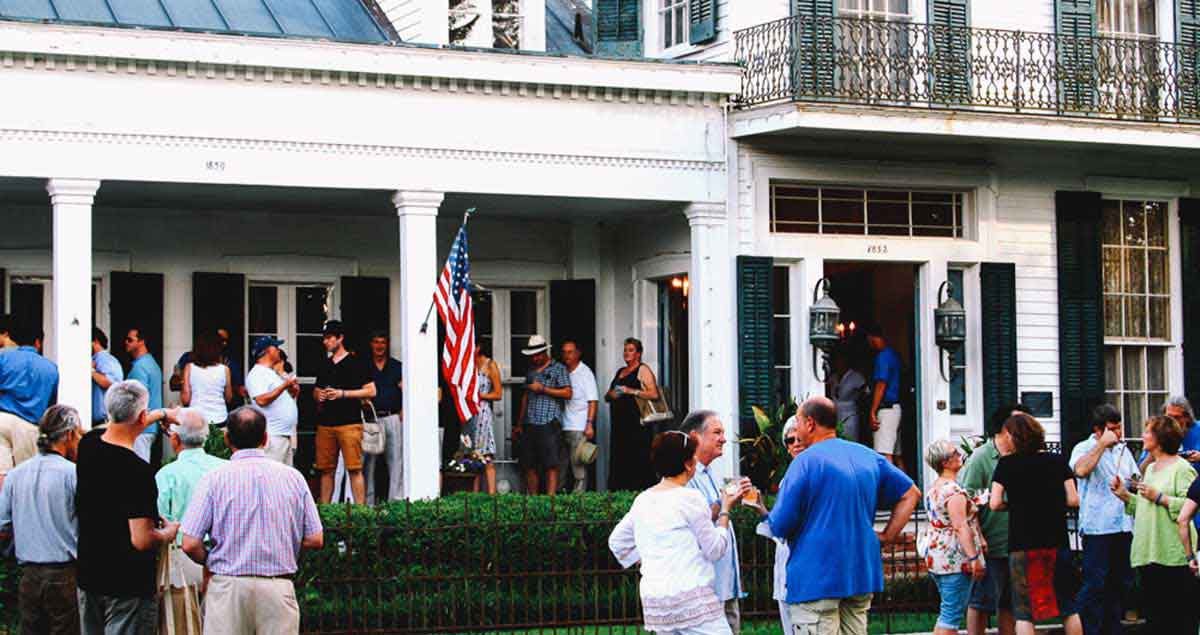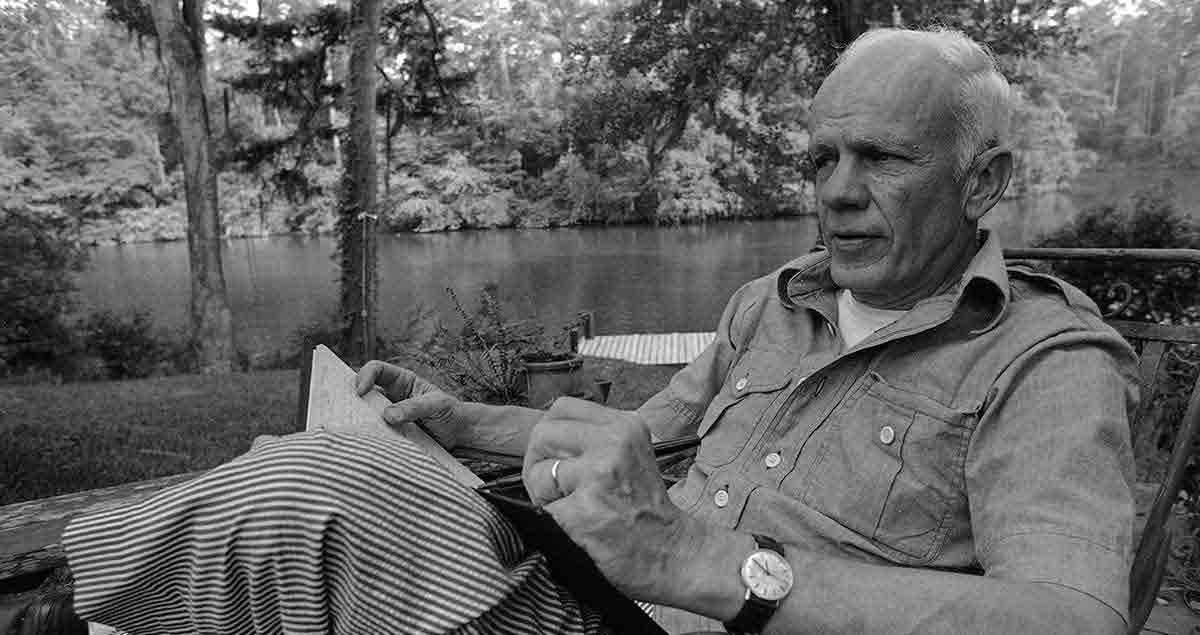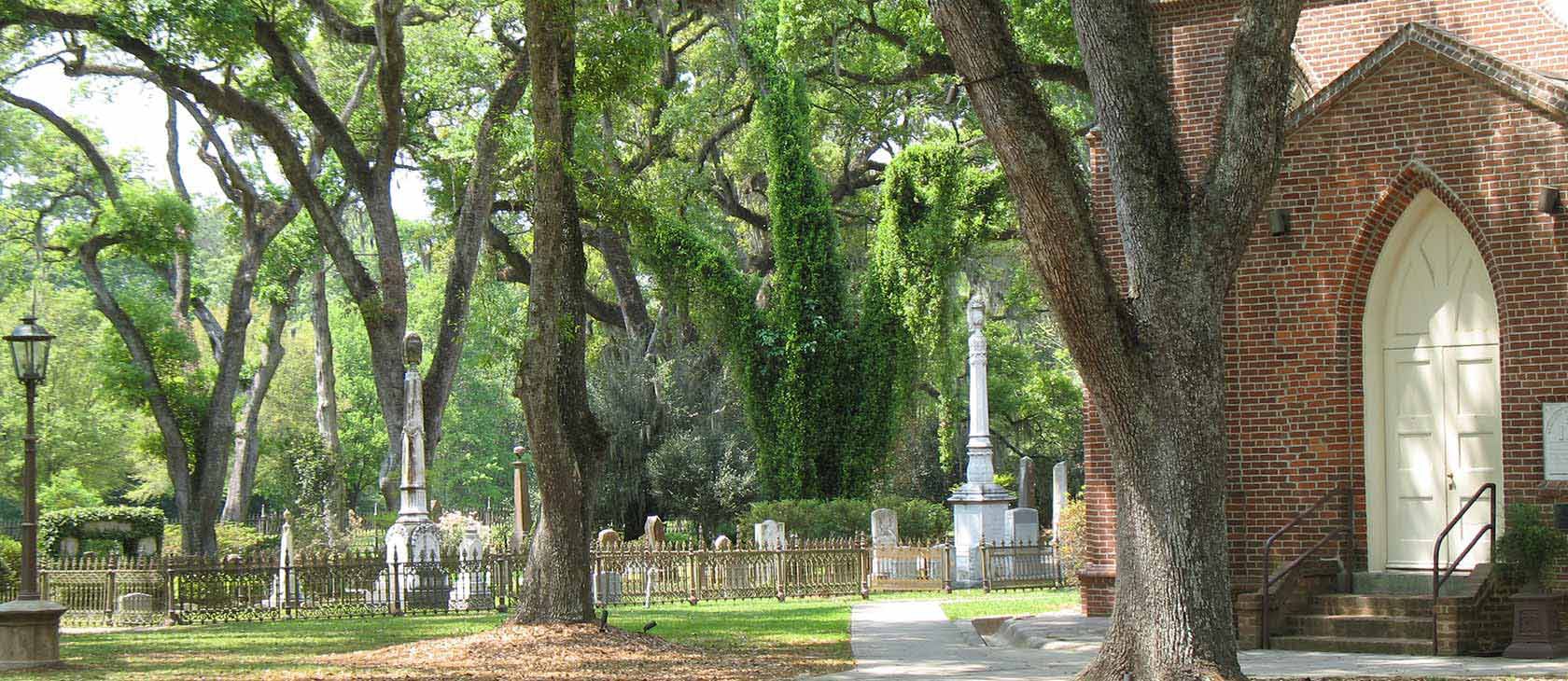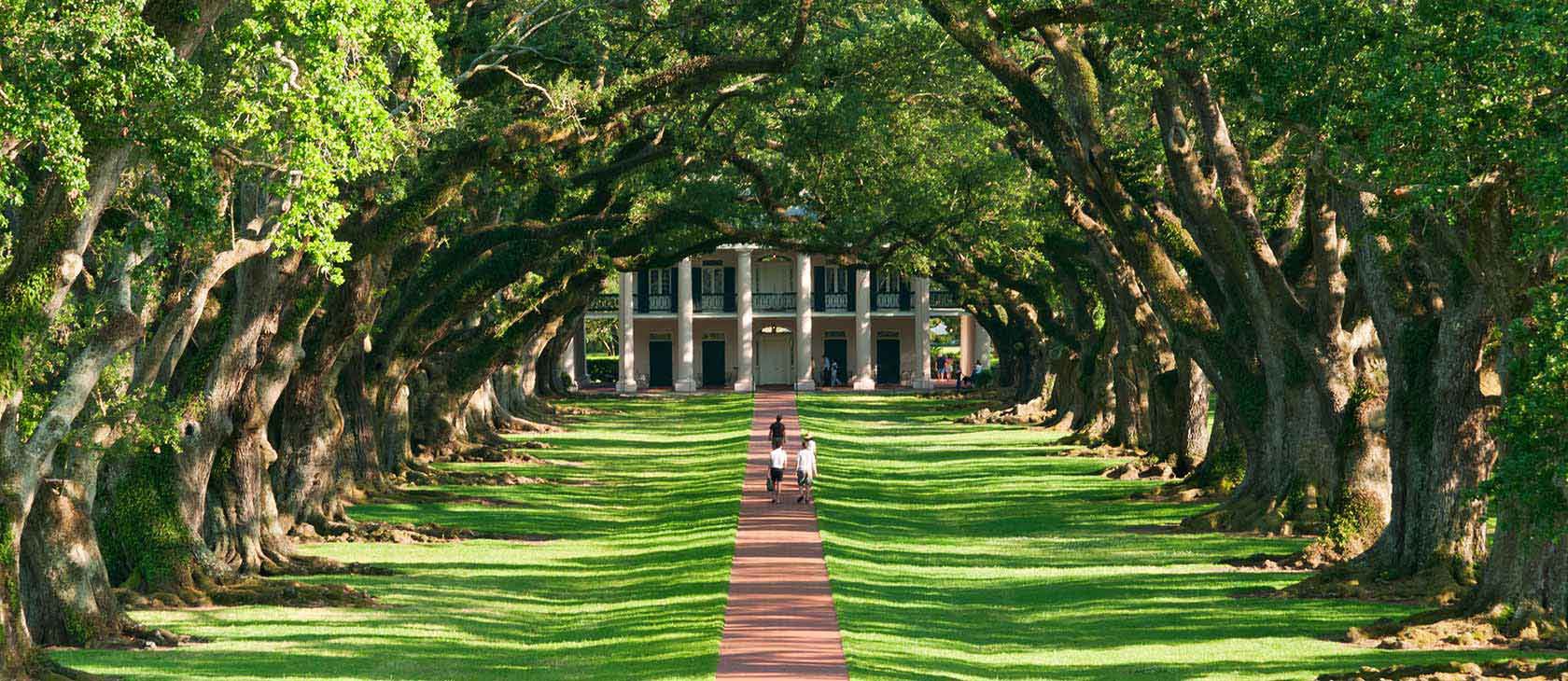A little over thirty years ago, a group of southern women dedicated to preserving the memories of their small Louisiana town of St. Francisville formed an organization called The Julius Freyhan Foundation, named after a Jewish immigrant who had helped build the town’s first public school.
Julius Freyhan migrated to St. Francisville in the mid-1800s to find freedom from religious persecution in Germany. He quickly rose to success as a businessman and opened the main dry goods store in the area, Freyhan and Company, selling everything from horse-drawn buggies to pinewood coffins. Both southeast Louisiana and southwest Mississippi owed thanks to Freyhan for supplies. In a post-Civil War society, Freyhan helped keep southern farmers financially afloat, and as Freyhan succeeded, he poured money back into his community, helping to fund the Julius Freyhan High School and a local Synagogue, Temple Sinai.
A beautiful three-story building, the Freyhan School now stands in disrepair, overlooking the Mississippi River. Yellowed wainscoting, rusty, patterned tin ceilings and an overgrown football field are now the only testaments to a once vibrant school and its generous namesake. The Julius Freyhan Foundation, however, is working to change that through unlikely means -- the memory of Walker Percy.
St. Francisville is now the epicenter for a uniquely southern gathering, the literary festival known as Walker Percy Weekend, a celebration of the life and works of Walker Percy, the 20th century southern writer. As someone who graduated from a small college in Pennsylvania with a degree in English, I was familiar with Percy and liked his work but wanted to know more. What was it about Percy that drew so many people to a small southern town?
Walker Percy’s influence
Located in West Feliciana Parish about 40 minutes north of Baton Rouge, St. Francisville is home to just over 1,700 people, but it’s one of Louisiana’s singular tourist draws. Many historic sites and plantations attract people looking for the Antebellum South, including Rosedown Plantation, Afton Villa Gardens and the infamously haunted Myrtles Plantation. But for the past five years, the town has given visitors another reason to travel south.
When Miss Nancy comes by and tells you she wants something, you jump.
Rod Dreher, New York Times bestselling author and journalist, was instrumental in the creation of the event and explains the far-reaching scope of Percy’s influence this way: “I think the first year, we had people coming from Canada and all over the U.S. ... Most people who come to the festival aren’t locals. We have definitely grown in renown.” If it wasn’t for the fact that St. Francisville has limited accommodations, the number of tickets sold would probably reach well over the cap of 400, approximately. “It delights me as we become known to a new generation of people for our connections to Percy,” Dreher said.
The catalyst for the event was a woman named Nancy Vinci, described by Dreher as the matriarch of West Feliciana Parish and now in her eighth decade. Vinci knew that Dreher was a writer and had connections to bring people from all over the country to their town. One day, she knocks on Dreher’s door and tells him that St. Francisville needs a new festival. “I was startled to see her there because she is such a formidable presence,” Dreher recalled. “A wonderful person, but when Miss Nancy comes by and tells you she wants something, you jump.” Dreher, knowing that Percy is probably the most famous writer Louisiana has produced and that some of Percy’s distant relatives live in the area, suggested a literary festival centered on his writings. Vinci loved the idea, and a year later, they put the project into motion, launching the first festival in 2014.

Born and raised in Earle, Arkansas, Vinci has a passion for keeping history alive. She married at the age of 18 after meeting her husband at Ole Miss, and moved with him to his hometown, St. Francisville. “In my town, there was nothing old there,” she said in her thick drawl, characteristic of her native Arkansas. “You cut down in the Delta so you can plant cotton right up to the edge of town, but in St. Francisville, we have so many historic buildings. It just grabbed me.” Visiting St. Francisville does feel a bit like stepping back in time, but it takes work to keep those historic memories alive, as the buildings being restored by the Freyhan Foundation had once been listed as endangered by the Louisiana Trust for Historic Preservation.
“I didn’t go to the Freyhan School, but my husband did, along with Anne Bennett, one of my best friends in St. Francisville,” Vinci told me. “Anne was president of the foundation when she got cancer. I visited her every day, and every day she said to me, ‘Will you help with this project?’” After the death of her friend, Vinci stepped into her shoes as president and helped the preservation foundation make progress by raising money and investing it back into the community.
After receiving a matching grant from the National Park Service, the Julius Freyhan Foundation was able to restore St. Francisville’s historic synagogue to the tune of half a million dollars and Temple Sinai is now used as a space for weddings and community activities.
Vinci has a fondness for old buildings and architecture. “When my husband and I first went back to St. Francisville, we took what had been a worker’s cabin and redid it,” Vinci said. “I’ve never lived in a new house, and I don’t want to live in a new house. I want to live in a house that’s got some history to it, you know?” It was this passion for history that motivated Vinci to raise funds for the Freyhan Foundation with proceeds from the Percy festival. Percy, although not originally from St. Francisville, set his novels largely in New Orleans and the semi-fictitious Feliciana Parish. “I wanted a literary festival. I didn’t want just another parade, but I wanted a different feel for our town,” Vinci said. “Our town is different, there’s no two ways about it. And we need to keep those stories alive.”
Day One: Southern Culture
The festival events are made up of lectures, panel discussions, book readings and social events. It’s a festival billed for lovers of “good food, craft beer and bourbon, live music, and discussions about books and southern culture under the live oaks.” Every festival attendee was given a deep dive into the southern experience, complete with 19th century accommodations and crawfish boils. I was lucky enough to stay at The Cottage Plantation, built in the late 18th century on old antebellum land. Today the plantation is used as a bed and breakfast featuring some of the original furniture. Most of the plantation buildings, including the greenhouse, milk house and kitchen, remain standing, framed with Spanish oak moss.
The first day of the festival began on a Friday night. That evening, people dressed in seersucker suits and white linen dresses gathered at the historic Grace Episcopal Church yard for a reception over mint juleps. It was there that I struck up a conversation with Brian A. Smith, the managing editor of Liberty Fund’s Law and Liberty online publication. To my surprise, he told me that he often gives Percy’s book, “Lost in the Cosmos,” to young adults who he knows are searching for purpose, because the book acts like “a mirror.” “You’ll see just about every worldview dancing around in our society today, represented in its pages,” Smith said. “And they’re all given pretty unstinted criticism. So I guess if there’s been a strategy behind my giving the book out, it’s always been that people who are asking questions about the meaning of life often find that Percy has named it, named their confusions and given them good reasons for it.”
You’ll see just about every worldview dancing around in our society today, represented in its pages
“Lost in the Cosmos” may be one of Percy’s strangest works and that’s saying something. In it, Percy does not shy away from criticizing Christians and unbelievers as well as people all across the political spectrum. In his parody of a self-help book, Percy cuts through the everyday-ness of life and sends readers along a frenzied path of exploration, presenting them with questions and “thought experiments” designed to shake up the reader’s assumptions and realize a purposeful life. “Lost in the Cosmos,” along with most of Percy’s library of work, is an example of the use of deeply philosophical narration to reach readers.
Percy said in an interview captured in “Walker Percy: A Documentary Film”: “I’m a catholic novelist in the sense that the Catholic faith, which is the Judeo-Christian background, informs me as a writer, and it has to do not so much with an explicit faith or transmitting an explicit faith in my writings, as it has to do with the view of man, the theory of man … man as man the wayfarer, man the pilgrim, man in transit, on a journey.” Percy didn’t set out to write specifically Catholic novels, but his worldview informs his writing. Instead of directly handing his readers the answers to life’s big questions, Percy subtly weaved them into compelling, unforgettable stories. The identification of man as a wayfarer is what festival attendees told me caused them to fall in love with Percy’s writings, what they felt they could connect with and what helped them along their search for purpose.
It was when he began reading and rereading Percy as a person who was coming closer to accepting Christianity that Smith realized Percy gave him reasons to believe. “And he’s given lots of people over the years reasons to see faith as a possibility,” he told me. Smith has written much on Percy over the years, including “Walker Percy and the Politics of the Wayfarer,” a helpful guide to understanding Percy’s philosophy.
Troubled beginnings
The oldest of three boys, Percy was born in Birmingham, Alabama, where he was pulled into the wake of family depression. Shortly before Percy’s first birthday, his grandfather committed suicide, followed by his father 12 years later. Shortly after his father’s death, Percy’s mother drove her car into a river and also died, a loss Percy personally ruled a suicide.

After the death of both parents, Percy and his two brothers were sent to live in Greenville, Mississipi, with their father’s cousin, William Alexander Percy, called Uncle Will by the three boys. Will Percy gladly took the boys in, exemplifying for them family loyalty and self-sacrifice. He was also a man cut in the cloth of southern stoicism, which compelled him to uphold southern, class-based manners in an atmosphere of what he believed to be a dispossessed aristocracy. Stoicism didn’t provide an antidote to Percy’s feelings of alienation, so much so that his first essay published in 1956, “Stoicism in the South,” scathingly addressed this ethos of southern segregation. Still on an existential hunt, Percy turned to science and went on to pursue a career in medicine.
It was ultimately during Percy’s battle with tuberculosis, contracted during an autopsy, that he found his true vocation. While Percy was confined to his hospital bed with TB, he read the writings of philosopher Søren Kierkegaard and became convinced that science could not explain his plight. Percy said in a 1972 “Firing Line” interview with William F. Buckley, Jr., that “the scientific method cannot make a single statement about the individual man … it can only describe man so far as he is with other people.” After discovering that science could not settle his unease, Percy diverted from his path in medicine and eventually settled down in a suburb of Louisiana where he began his career as a writer. His first novel, “The Moviegoer,” won the National Book Award.
Shouldering a burden of family suicide may have laid the foundation for Percy’s existential literary tone, although he didn’t care for the existentialist label. In a 1978 interview at his home in Covington, when asked to describe his Catholic existentialism in a few sentences, Percy replied that it was defined by his view of man apart from being only a consumer and organism. It’s the warped, solely scientific view of the human person that Percy believed leads to destruction, the kind repeatedly seen in the 20th century. Percy is often called a prophet of modern times for recognizing the danger in those worldviews that denigrate the value of the human person. Instead, Percy affirmed, man is made in the image of God, and it’s his search for meaning among the ruins here on earth that drives him toward various worldviews.
Day Two: Life in the “malaise”

One of many works by Percy that highlights this search is the novel “Love in the Ruins,” an apocalyptic and comedic examination of modern discontentment in what Percy aptly named the “malaise.” On the morning of the second day of the festival, I attended a lecture on “Love in the Ruins,” held in Temple Sinai and led by Colin H. Messer, Chair and Professor of English at my alma mater, Grove City College. The lecture was a lively commentary on Percy’s view of the world as presented in the novel, written from the perspective of “a bad catholic at a time near the end of the world.” Through the events of the novel, Percy surveys modern times with a shrewd eye and portrays the American suburban life as a tragedy. “The tragedy has to do with banality, the loss of meaning,” said Messer. He ended his lecture in praise of a sacramental life, a joy found in the ordinary fellowship and tasks of the everyday, a note on which Percy redeems his “bad catholic” character.
What readers, myself included, often miss about Percy’s characters at the close of his novels is their redemption. At first hopelessly trapped in (what they believe to be) an ordinary and banal life they discover the meaning of the human person and the value of seemingly menial pleasures; this is the joy Percy found. Jessica Hooten Wilson, Associate Professor of Creative Writing at John Brown University told me that “for Percy, if you’ve gotten to the end and have decided to live the everyday life … you have not given up.” She used Binx Bolling, the primary character in “The Moviegoer,” as an example. After a gallivant throughout New Orleans and the Gulf Coast in hopes of being spiritually awakened from his dull, routine life as a stock broker, Bolling decides to settle down, get married and become a doctor. “He’s not the person he was in the beginning, but it looks like it, because now he understands that he’s receiving something else, some taste of grace, while going through the complex participation of life,” Wilson said.
She also led a book discussion on Saturday. Gathered in a circle inside Grace Episcopal Church, Wilson sparked discussion among the 30-odd people there, breaking down Percy’s novel, “The Last Gentleman”. Although Percy’s novels are all quite different, written in different tones and even in different genres, there are a handful of his works which are similarly centered on characters who find themselves very obviously on “the search,” and the central character in “The Last Gentleman” is one of these. Wilson led an energetic discussion although some of her questions seemed to stump the listeners as she asked for plot point and thematic explanations. Sometimes Percy subtly leaves the answers right under your nose.
The last literary event on Saturday featured a panel discussion between Percy’s daughter, Mary Pratt Percy Lobdell and Huger Foote, the son of the late Shelby Foote, Civil War historian and lifelong friend of Percy. This event was a favorite of the festival-goers. Lobdell and Foote told story after story of the memories they shared of their fathers, of their friendship, and growing up in the shadow of literary success. Shelby Foote and Walker Percy met as neighbors in Greenville, Mississippi, and afterwards were fast friends. Lobdell and Foote both remembered their fathers sweating over their writing. “My father would lock himself away in his study for hours and sometimes agonize over his writing,” Lobdell remembered. Both tears and laughter were shared during that hour.
Fellowship under the oaks
After all the panels and discussions had wrapped up, the progressive front porch tour and bourbon tasting began. Both festival attendees and locals gathered on several porches in St. Francisville’s historic district, and although the early summer sun was beginning to set, it was still quite hot even for Louisiana. Royal Street was filled with the sounds of clinking glasses and humming fans.
Percy’s writings spoke to all people and brought them into rich fellowship with each other.
It was there that I was introduced to Philip Thompson, who partially credits Percy for changing the course of his life. He took me back to when he was a successful attorney, going through a sort of “existential crisis.” In 1990, after having been the campaign chair for his law partner’s run for Lieutenant Governor in Georgia, Thompson decided one race was enough for him. “I realized it wasn’t the life for me,” he said. “So I got out of politics and was adrift.” It was at that time of vocational and spiritual questioning when he became terribly sick with pneumonia.
Confined to a bed (not unlike Percy), Thompson began reading Percy’s books. The author’s project of examining man’s alienation resonated with Thompson. “We, including him and me and everybody else who lives in this modern American world are stuck in the malaise, a very existential kind of term,” he said. “But what he means is that we’re stuck in a world of everydayness, whether it’s scientism or a lot of other false paths.” Thompson says that’s why Percy quotes Kierkegaard on the nature of despair; “the true nature of despair is precisely this: It’s the unawareness of being in despair.” Percy compels his readers to ask life’s ultimate questions and subtly presents them with the truth that lasting joy can never be found in the material world, but only in eternity. Thompson committed his life to Christ and afterward joined the faculty at The Aquinas Center of Theology at Emory University, where he is now the executive director and teaches the literature of Walker Percy.

On Saturday night, the bourbon crawl ended on Prosperity Street across from Grace Episcopal Church. The air cooled down and everyone sat at a long table for boiled crawfish and craft beer. For several hours, people there talked and ate and danced almost until midnight. Percy’s work didn’t pertain only to people of one region, religion, culture, or race – his writings spoke to all people and brought them into rich fellowship with each other.
The Freyhan Foundation is currently using the money raised by Walker Percy Weekend to turn the old Freyhan School into an art center. “I would like to expand it and tell the story of what the Jewish population has done for our little town, especially along the lower Mississippi River,” Nancy Vinci told me. Through the restoration project underway, the Freyhan School will be transformed into a museum and cultural center where people can learn more about the history of the community and participate in the arts. “Our town is special and we’ve got to preserve that history.” Vinci says emphatically. “We can’t throw it away. We’ve got to understand where we’ve come from.”
While Percy’s novels speak personally to those living in the south, he speaks truly to people of all walks of life. “My novels attempt to be an exploration of what it is to be a man, living in a particular time and a particular place,” he told Buckley on “Firing Line”. “I’m exploring what it is to be human.” This exploration of the meaning of life and the value and dignity of the individual person is the core of Percy’s work. It was there at a table laden with crawfish and beer, and surrounded by a myriad of people that this became obvious; it’s Walker Percy’s humility, admitting his struggles and his questioning, that connects readers and brings them together in a place like St. Francisville. “Percy’s ability to help us see our faults, that’s key,” Jessica Hooten Wilson told me. “Really, that’s what Percy lets us do, to let go of the things we’re not supposed to hold onto and hold onto the things that are good, that are lasting.”
Image "Grace Cemetery" used under Creative Commons license (CC BY 2.0). Cropped.



